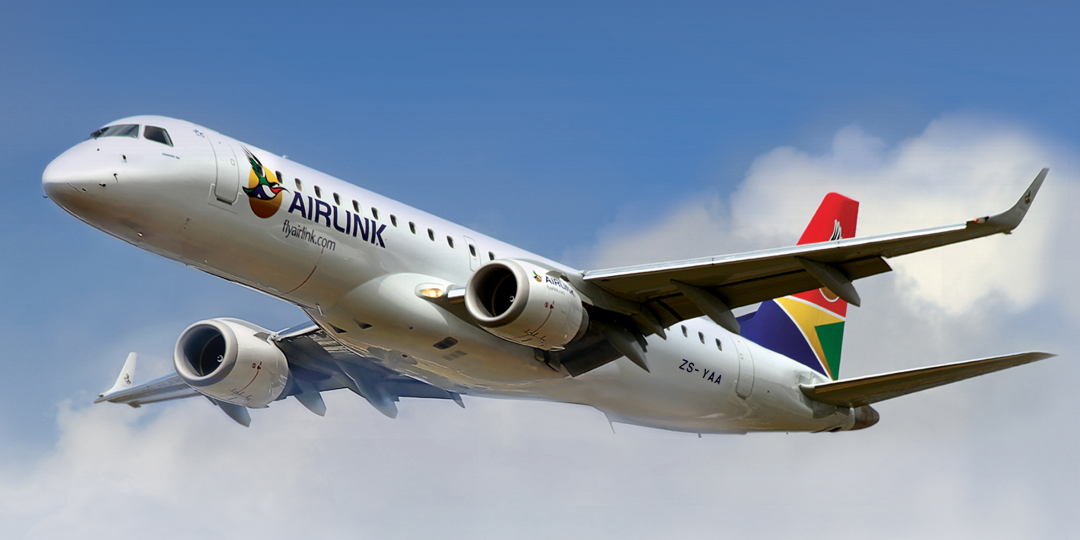Independent airline, Airlink, will re-introduce its regional flight schedule from October 5. This includes a new twice-weekly early afternoon service between Johannesburg and Maputo.
The schedule for travel beyond South Africa to Zimbabwe, Zambia, Namibia and Mozambique will be reintroduced on a phased-in basis, according to a statement from the airline.
The statement also mentioned the introduction of other new routes “soon” with some route changes expected as well. The new services will include flights from Johannesburg to Windhoek, Entebbe, Dar es Salaam, Luanda and Lubumbashi; from Cape Town to Victoria Falls and Maun; from Johannesburg to Gaborone, Maun, Kasane, Antananarivo, Nosy Be, Vilanculos, Maseru, Manzini, and Livingstone.
A spokesperson for the airline said travellers would now have the freedom to combine their local and regional flights from major cities such as Cape Town, Durban, Port Elizabeth, East London, Bloemfontein, and Nelspruit, to regional destinations such as Harare, Lusaka, and Maputo on Airlink services on a single-ticket itinerary.
Starting October 5:
Johannesburg-Harare: The daily flight will depart Johannesburg at 10h30, arriving in Harare at 12h10. The return flight will depart Harare at 12h40 arriving in Johannesburg at 14h35.
Commencing October 12:
The new Johannesburg-Maputo service will operate on Wednesdays and Fridays, departing Johannesburg at 13h45 arriving in Maputo at 14h40. The return flight will depart Maputo at 15h15 and arrive in Johannesburg at 16h25.
Airlink’s regular services will also be introduced on October 12 on the following routes:
- Johannesburg-Bulawayo
- Johannesburg-Walvis Bay
- Johannesburg-Ndola
- Johannesburg-Lusaka
- Cape Town-Windhoek
- Johannesburg-Pemba, northern Mozambique
- Johannesburg-Beira
- Johannesburg-Tete
Airlink highlighted that under the COVID-19 Level 1 travel restrictions, the Government required travellers to South Africa to provide a negative Polymerase Chain Reaction (PCR) test certificate obtained not more than 72 hours before the date of travel from an accredited laboratory and in line with WHO requirements.
An ‘immunity passport’ or ‘risk-free certificate’, ‘passport immunity’ in respect of COVID-19 is not acceptable.














